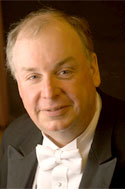 We’ve all been in those awkward social situations, in which sustaining any sort of conversation is a Herculean task. We know it’s often best to not talk politics or religion with strangers; sadly, that’s become a recipe for unpleasantness, and possibly disaster. Still, there is one gambit that remains relatively safe: “What do you do?” In my experience, when people find out I’m a music professor and pianist, a subsequent question usually follows: “Who is your favorite composer?” My answer to this question isn’t consistent as it depends in part on my mood, what I’m currently playing or what I’m currently listening to. And, I’m often reluctant to make a choice, since selecting between Mozart and Chopin and Debussy and Bartók — and three dozen more composers — feels literally impossible. Yet, if I absolutely had to decide who is the first among equals, more often than not, I come to the same answer: Beethoven. I have a myriad of reasons for placing Beethoven first: the range of emotions he expresses, the extraordinary way he conveys his ideas through the piano and his ability to shape those ideas in brilliant structures. When I couple those achievements with elements of his biography — his deafness, his astonishing work ethic, and, most movingly, his decision to love humanity and the world despite his enormous challenges and personal disappointments — I find that he occupies special spots in my heart and mind. So, I guess that I kinda, sorta do have a favorite composer. And, for the sake of sustained conversation, I hope you do, too!
We’ve all been in those awkward social situations, in which sustaining any sort of conversation is a Herculean task. We know it’s often best to not talk politics or religion with strangers; sadly, that’s become a recipe for unpleasantness, and possibly disaster. Still, there is one gambit that remains relatively safe: “What do you do?” In my experience, when people find out I’m a music professor and pianist, a subsequent question usually follows: “Who is your favorite composer?” My answer to this question isn’t consistent as it depends in part on my mood, what I’m currently playing or what I’m currently listening to. And, I’m often reluctant to make a choice, since selecting between Mozart and Chopin and Debussy and Bartók — and three dozen more composers — feels literally impossible. Yet, if I absolutely had to decide who is the first among equals, more often than not, I come to the same answer: Beethoven. I have a myriad of reasons for placing Beethoven first: the range of emotions he expresses, the extraordinary way he conveys his ideas through the piano and his ability to shape those ideas in brilliant structures. When I couple those achievements with elements of his biography — his deafness, his astonishing work ethic, and, most movingly, his decision to love humanity and the world despite his enormous challenges and personal disappointments — I find that he occupies special spots in my heart and mind. So, I guess that I kinda, sorta do have a favorite composer. And, for the sake of sustained conversation, I hope you do, too!
